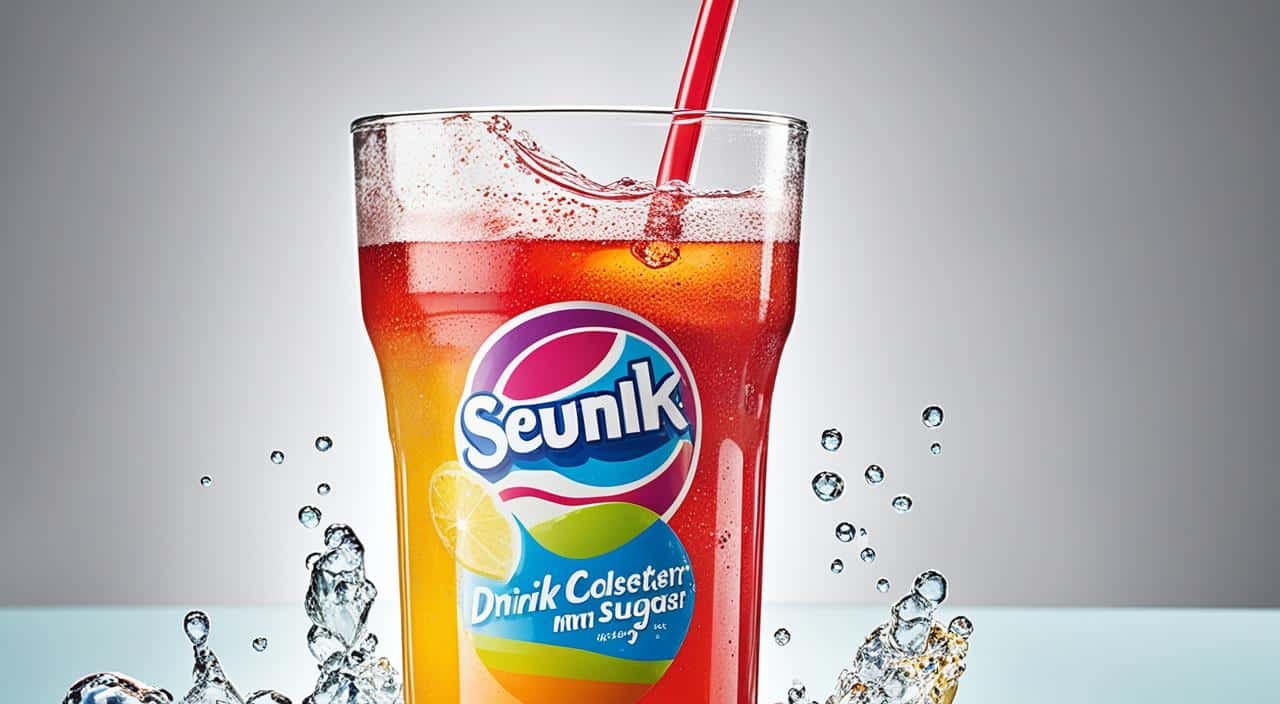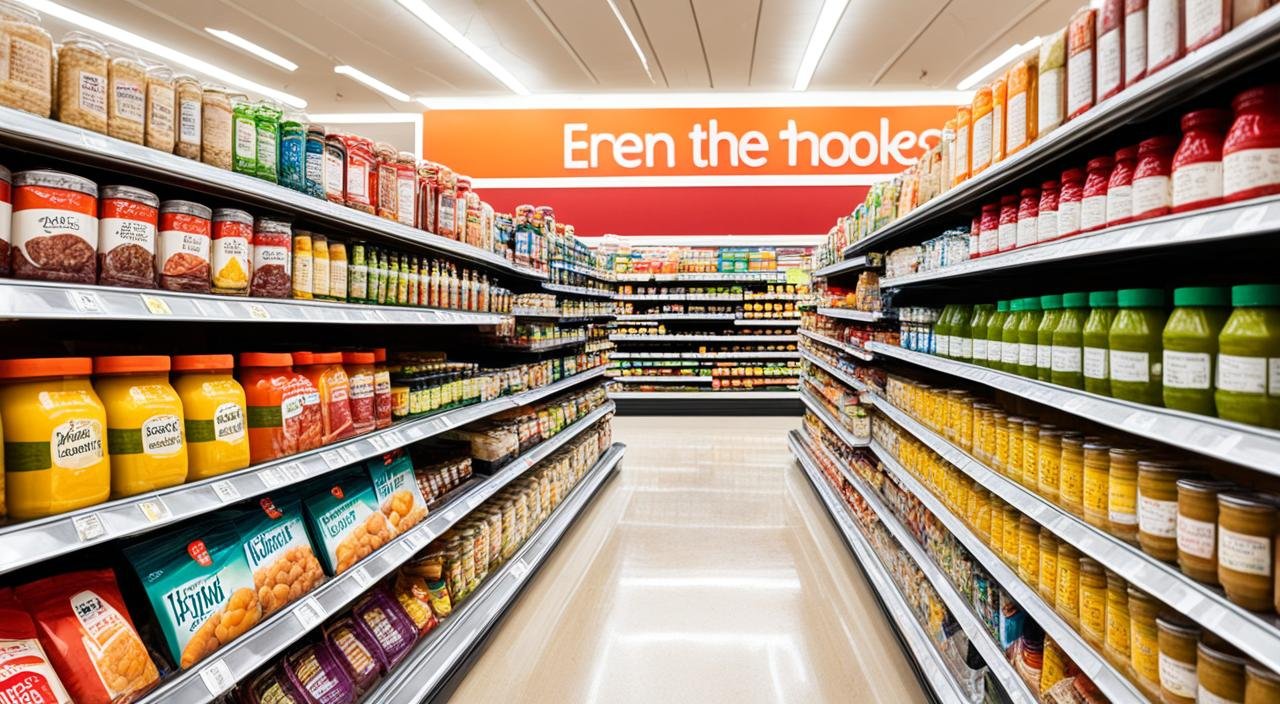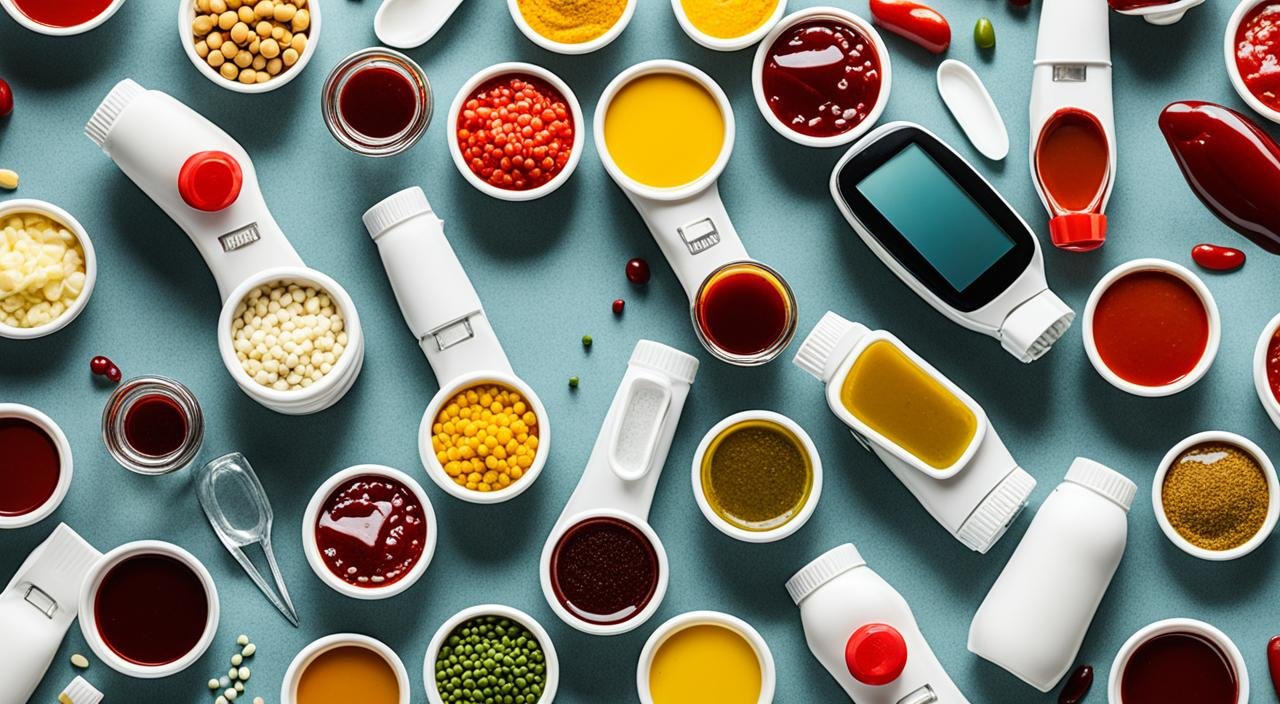High blood pressure, or hypertension, affects nearly half of adults in the U.S. Eating right is key to managing and preventing it. Some foods can make high blood pressure worse and raise the risk of heart disease and stroke. Knowing which foods to avoid and which to eat is important for your blood pressure and heart health.
Key Takeaways
- Excessive sodium, added sugars, saturated and trans fats, red meat, and alcohol can all contribute to high blood pressure.
- Processed meats, sugary beverages, and high-sodium condiments are especially problematic for individuals with hypertension.
- A diet rich in fruits, vegetables, whole grains, lean protein, and low-fat dairy can help lower blood pressure and improve cardiovascular health.
- Monitoring your blood pressure at home and making lifestyle changes, such as reducing sodium intake and exercising regularly, can help manage and prevent high blood pressure.
- Consult with your healthcare provider to develop a personalized plan for managing your high blood pressure through diet and other lifestyle modifications.
High Sodium Foods to Avoid with High Blood Pressure
For people with high blood pressure, eating less sodium is key. Many foods, like processed and packaged ones, have a lot of sodium. This can make high blood pressure worse. Foods like processed meats and cured meats are especially bad because they’re so salty.
Processed Meats and Deli Cuts
Deli meats like ham, turkey, and roast beef are often loaded with sodium. So are sausages, bacon, and other processed meats. These foods can add a lot of sodium to your diet, more than the daily limit recommended by the American Heart Association. Always check nutrition labels and pick low-sodium or no-salt-added options when you can.
- Deli meats such as ham, turkey, and roast beef
- Cured meats like sausages and bacon
- Sandwiches, burgers, pizza, and canned soup can also be high in sodium
- Tacos and burritos often contain high-sodium ingredients
By checking nutrition labels and choosing low-sodium foods, people with high blood pressure can eat fewer processed foods. This helps them manage their condition better.
“The American Heart Association recommends consuming no more than 2,300 milligrams of sodium per day, but many Americans exceed this limit without realizing it.”
Also Read :What Are The Fees And Interest Rates For Payday Loans?
Sugary and High-Fructose Beverages

Drinking too much sugary and high-fructose drinks can raise your blood pressure. Drinks like sodas, fruit juices, and energy drinks often have a lot of high fructose corn syrup. This syrup can make you gain weight and increase your blood pressure.
To keep your blood pressure in check, cut down on these sweet drinks. Choose water, unsweetened tea, or low-fat milk instead. This change can lower your risk of hypertension and weight gain.
| Beverage | Fructose Content | Potential Impact on Blood Pressure |
|---|---|---|
| Regular Soda | High (up to 55g per 12-oz serving) | Increased risk of hypertension and weight gain |
| Fruit Juice | Moderate to High (12-30g per 8-oz serving) | Elevated fructose intake can contribute to hypertension |
| Energy Drinks | High (up to 62g per 16-oz serving) | Excess added sugar and caffeine may worsen blood pressure |
Watch how much fructose you get from these drinks and pick better options. This can help you manage your blood pressure and boost your heart health.
Also Read :How Do I Avoid Predatory Loans?
Red Meats and Processed Red Meats

Red meat is a good source of protein and nutrients. But, eating it, especially in processed forms, can hurt your blood pressure. The way our body breaks down red meat can release compounds that raise blood pressure.
Unhealthy Compounds in Red Meat
Red meat includes beef, lamb, pork, veal, venison, and goat. It has compounds that can harm your blood pressure. These are:
- Heme iron, which can cause inflammation and oxidative stress
- Sodium, added during processing to taste better and last longer
- Saturated fats, which can lead to artery plaque buildup
Processed red meats like deli meats, sausages, and bacon have more of these harmful compounds. They are a big concern for people with high blood pressure.
The American Heart Association suggests watching how much red meat you eat. Choose leaner cuts or plant-based proteins instead. These options give you the protein and nutrients you need without harming your heart.
“Limiting your intake of red meat, especially processed varieties, can be an effective way to help manage high blood pressure and support overall cardiovascular health.”
Also Read :What Are Common Lung Diseases?
High Blood Pressure and Alcohol Consumption
Drinking too much alcohol is a big risk for getting high blood pressure, also called hypertension. It makes blood pressure go up and can lead to heart disease. This is a top cause of death for people with high blood pressure.
Drinks like beer, wine, or liquor have lots of empty calories. These calories can cause unintentional weight gain. This extra weight can make high blood pressure worse, leading to poor heart health.
“The American Heart Association advises limiting alcohol intake to no more than two drinks per day for men and one drink per day for women to help manage high blood pressure.”
Following these guidelines can help reduce the bad effects of alcohol on blood pressure and heart health. By being careful with how much alcohol you drink, people with hypertension can better manage their condition. This can lower their risk of heart disease.
Also Read :What Is A Loan Principal?
Saturated and Trans Fats
Managing high blood pressure involves watching the fats you eat. Saturated and trans fats in processed foods can hurt your heart health and raise blood pressure.
Saturated fats are in full-fat dairy, processed meats, and cooking fats. They increase heart disease and high blood pressure risk. Trans fats are in baked goods, sweets, and processed foods. They also raise blood pressure and heart disease risk.
Processed Foods: A Source of Unhealthy Fats
Many processed foods have lots of saturated and trans fats. These fats can hurt your blood pressure and heart health. The American Heart Association says eat less than 5-6% of your daily calories from these fats to keep blood pressure healthy and lower heart disease risk.
- Processed meats like bacon, sausages, and deli cuts have a lot of saturated fats and sodium. Both can raise blood pressure.
- Baked goods like cookies, cakes, and pastries are often full of saturated and trans fats. These fats are bad for your heart.
- Some cooking fats, including shortening and certain margarines, have unhealthy trans fats. Avoid them when you have high blood pressure.
Watch the fats in your diet and eat fewer processed foods with saturated and trans fats. This helps keep your blood pressure healthy and lowers heart disease risk.
Also Read :Is A Personal Loan The Right Choice For You?
High Blood Pressure and Packaged Foods

Managing high blood pressure is crucial, and the foods we eat play a big part. Packaged and processed foods can be tricky, even if they seem healthy. They often have a lot of sodium, sugar, and unhealthy fats, which can raise blood pressure.
Looking at nutrition labels is key. By checking the sodium, sugar, and fat in packaged foods, people with high blood pressure can make better choices. Choosing foods with less sodium or going for fresh ingredients helps a lot.
| Nutrient | Recommended Daily Limit (for those with high blood pressure) |
|---|---|
| Sodium | Less than 1,500 mg |
| Sugar | Less than 25 g |
| Saturated Fat | Less than 16 g |
Choosing fresh foods and checking labels helps people with high blood pressure. It’s important to eat fewer packaged and processed foods. These foods are often high in things that can raise blood pressure.
Eating a balanced diet with lots of fruits, veggies, whole grains, lean proteins, and healthy fats is key. Making smart choices and watching what’s in packaged foods can help you control your health. This can lower your risk of problems related to high blood pressure.
Condiments and High Blood Pressure

Many condiments might seem safe, but they can be high in sodium and sugar. These can hurt your blood pressure. Ketchup, hot sauce, soy sauce, and salad dressings often have hidden sodium and sugars. These can mess up a diet meant for a healthy heart.
Hidden Sodium in Condiments
Looking at nutrition labels shows that common condiments have a lot of sodium. For instance, two tablespoons of regular ketchup have over 300 mg of sodium. Soy sauce has a huge 900 mg in the same amount. Even salad dressings can have 200-300 mg of sodium per serving.
To avoid these hidden sodium sources, read nutrition labels carefully. Choose low-sodium or no-sugar-added versions of your favorite condiments. Making these simple changes lets you enjoy your favorite flavors without risking your blood pressure.
| Condiment | Sodium (per 2 tbsp serving) | Sugar (per 2 tbsp serving) |
|---|---|---|
| Ketchup | 323 mg | 6 g |
| Soy Sauce | 902 mg | 2 g |
| Ranch Dressing | 290 mg | 2 g |
| Barbeque Sauce | 240 mg | 16 g |
Being aware of the sodium and sugar in your favorite condiments helps you make better choices. These choices support managing your blood pressure.
Caffeine and High Blood Pressure
Caffeine is found in drinks like coffee, tea, and energy drinks. It can affect blood pressure. Drinking more than four cups of these drinks a day can raise blood pressure for many people.
The American Heart Association says drinking two or more caffeinated coffee cups a day can be risky. This is especially true for those with high blood pressure. It’s best to cut down on caffeine or choose decaffeinated alternatives if you can.
| Beverage | Caffeine Content | Recommended Limit for Hypertension |
|---|---|---|
| Coffee | 95-200 mg per 8 oz cup | No more than 2 cups per day |
| Tea | 47-90 mg per 8 oz cup | No more than 4 cups per day |
| Energy Drinks | 50-160 mg per 8 oz serving | Limit or avoid completely |
| Soft Drinks | 35-55 mg per 12 oz can | Limit or avoid completely |
How caffeine affects blood pressure can differ from one person to another. It depends on age, genes, and health. If you have hypertension and worry about caffeine, talk to a doctor.
“Moderation is key when it comes to caffeine consumption, especially for individuals with high blood pressure. Opting for decaffeinated alternatives or limiting intake to recommended levels can help manage the potential risks associated with caffeine and hypertension.”
Also Read: Discover The Benefits Of Living In A Medical Village
Conclusion
Eating a diet full of nutrient-dense foods like whole grains, fruits, vegetables, and lean protein helps with high blood pressure. Also, lifestyle changes such as exercise and blood pressure medication from a doctor are key. They help manage high blood pressure.
Knowing which foods to eat and avoid is important for those with high blood pressure. This can help improve heart health and lower the risk of problems. The American Heart Association suggests eating well, staying active, and getting the right medical care to handle high blood pressure.
Small changes in your eating and lifestyle can make a big difference in your health. By making smart choices and focusing on your heart health, you can manage your high blood pressure. This can also lower your risk of other health issues.
FAQs
Q: What is high blood pressure?
A: High blood pressure, also known as hypertension, is a condition where the force of blood pushing against the walls of your blood vessels is consistently too high.
Q: How can I lower my blood pressure?
A: You can lower your blood pressure by maintaining a healthy diet, exercising regularly, managing stress, and avoiding foods high in salt and saturated fats.
Q: Why is it important to monitor your blood pressure?
A: Monitoring your blood pressure is essential to track any changes and ensure it stays within a healthy range to prevent complications like heart failure or stroke.
Q: How can I control high blood pressure at home?
A: You can control high blood pressure at home by using a blood pressure monitor regularly, following a healthy lifestyle, and taking any prescribed medications as directed by your doctor.
Q: What are the foods I should avoid with high blood pressure?
A: You should avoid foods high in sodium, saturated fats, and cholesterol, including processed foods, fast food, sugary beverages, and excessive alcohol.
Q: Can high blood pressure cause damage to the body?
A: Yes, high blood pressure can damage blood vessels and organs over time, leading to complications such as heart disease, kidney damage, and vision problems.
Q: How can I help lower my blood pressure during pregnancy?
A: If you have high blood pressure during pregnancy, it is important to follow your doctor’s recommendations, attend regular prenatal check-ups, and manage stress levels to help lower your blood pressure.
Source Links
- https://www.healthline.com/health/high-blood-pressure-hypertension/foods-to-avoid
- https://www.bhf.org.uk/informationsupport/heart-matters-magazine/nutrition/foods-that-lower-blood-pressure
- https://www.medicalnewstoday.com/articles/foods-to-avoid-with-high-blood-pressure




